Celebrity
Klaus Martin Einstein: A Glimpse Into the Life of Hans Albert Einstein’s Son
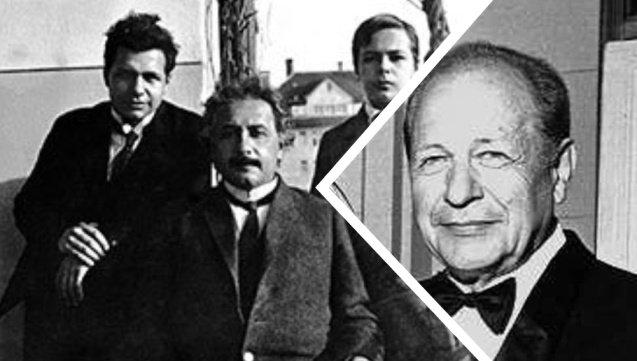
Klaus Martin Einstein holds a significant place in the Einstein lineage as the son of Hans Albert Einstein and the grandson of Albert Einstein, one of the most celebrated scientists of all time. Despite being part of such a renowned family, Klaus’s story is lesser-known but deeply impactful within the narrative of the Einstein family. His life, though tragically short, illuminates the familial bonds and challenges faced by the descendants of the great physicist.
Klaus was born on March 15, 1932, into a family grappling with both the pressures of legacy and the personal struggles of emigrating from Nazi Germany. His father, Hans Albert Einstein, was an accomplished engineer, while his grandfather, Albert Einstein, was already an iconic figure in science. Klaus’s life and untimely death contribute to the poignant history of this extraordinary family.
The Einstein Family Legacy and Klaus’s Place Within It
Klaus Martin Einstein was part of a family that represented both brilliance and adversity. His father, Hans Albert, was a distinguished hydrodynamic engineer who made significant contributions to sediment transport research. As Albert Einstein’s eldest son, Hans Albert inherited his father’s intellectual curiosity and scientific inclination.
Hans Albert married Frieda Knecht, and the couple had four children: Bernhard Caesar Einstein, Klaus Martin Einstein, Evelyn Einstein, and David Einstein. Klaus was the second son in the family, growing up under the shadow of his family’s illustrious reputation.
The Einstein family relocated to the United States in 1938 to escape the growing threat of Nazi persecution. This move marked a turning point, offering safety but also introducing the challenge of starting anew in a foreign land. Despite these upheavals, the family remained close-knit, with Klaus and his siblings experiencing a blend of privilege and pressure tied to their surname.
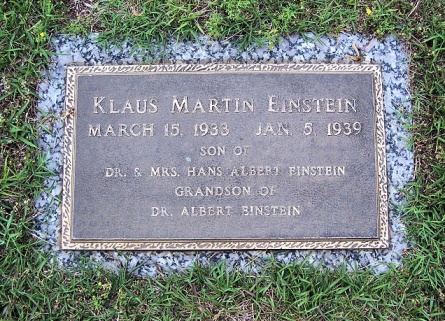
Klaus Martin Einstein’s Childhood and Personality
Klaus was known as a sensitive and warm-hearted child who brought joy to those around him. Growing up in the Einstein household meant being surrounded by intellectual conversations and an awareness of the family’s illustrious reputation.
Klaus exhibited a keen curiosity, mirroring his father and grandfather’s intellectual leanings, though he did not live long enough to leave a professional mark. His childhood was marked by the challenges of adjusting to life as an immigrant in the United States, a country that became the family’s refuge from the horrors of World War II.
Despite the family’s prestige, Klaus and his siblings experienced a relatively humble upbringing. Hans Albert and Frieda ensured their children remained grounded, balancing familial pride with a sense of responsibility.
The Tragedy of Klaus Martin Einstein’s Short Life
Klaus’s life was tragically cut short in 1939, at the tender age of six. Reports indicate that he died of diphtheria, a disease that was still a significant health threat in the early 20th century, despite the growing availability of vaccines. His death was a devastating blow to the Einstein family.
The loss of Klaus had a profound impact on Hans Albert and Frieda, as well as the other family members. Albert Einstein, who shared a close relationship with his grandchildren, mourned the loss deeply. The tragedy underscored the vulnerability and humanity of a family often seen as almost superhuman due to their extraordinary achievements.
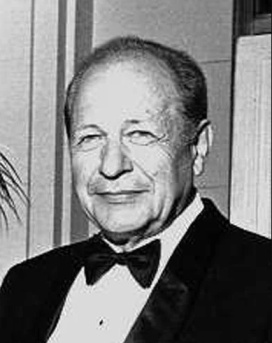
Klaus’s Siblings: The Continuing Einstein Legacy
While Klaus’s life ended prematurely, his siblings went on to carry forward the Einstein name in various ways. Bernhard Caesar Einstein, Klaus’s elder brother, followed in the scientific footsteps of his father and grandfather, becoming a physicist and engineer. He contributed to several significant technological advancements during his career.
Evelyn Einstein, Klaus’s adopted sister, pursued a life steeped in social justice and advocacy. Though she faced her own set of struggles, Evelyn remained committed to using her platform to aid marginalized communities.
David Einstein, the youngest sibling, chose a quieter path, leading a life away from the public eye. Together, Klaus’s siblings embodied different facets of the Einstein legacy, balancing personal passions with the weight of familial expectation.
The Enduring Significance of Klaus Martin Einstein’s Story
Although Klaus Martin Einstein’s life was brief, his story is a poignant reminder of the human aspects of the Einstein family. Behind the celebrated name lies a tapestry of triumphs and tragedies that shaped their shared history. Klaus’s death, in particular, serves as a reflection of the challenges faced even by those born into privilege and fame.
His untimely passing also underscores the importance of advances in medical science, which have since made diseases like diphtheria preventable. In this way, Klaus’s story ties into a broader narrative of progress—a value deeply cherished by his grandfather, Albert Einstein.
Conclusion
Klaus Martin Einstein may not have lived long enough to make his own mark on the world, but his story is an integral chapter in the history of the Einstein family. His life, though brief, serves as a testament to the personal struggles faced by even the most prominent families. It reminds us that behind every celebrated name lies stories of love, loss, and resilience.
The memory of Klaus Martin Einstein endures in the hearts of those who knew him and in the legacy of the Einstein family, whose contributions continue to inspire generations.
FAQs
Q: Who were Klaus Martin Einstein’s parents?
A: Klaus Martin Einstein was the son of Hans Albert Einstein, a renowned engineer, and Frieda Knecht.
Q: What was Klaus Martin Einstein’s relation to Albert Einstein?
A: Klaus Martin Einstein was the grandson of Albert Einstein, the celebrated physicist.
Q: How did Klaus Martin Einstein die?
A: Klaus died in 1939 from diphtheria, a disease that was still a major health threat at the time.
Q: Did Klaus Martin Einstein have siblings?
A: Yes, Klaus had three siblings: Bernhard Caesar Einstein, Evelyn Einstein, and David Einstein.
Q: What impact did Klaus Martin Einstein’s death have on his family?
A: Klaus’s death was a significant tragedy for the Einstein family, leaving a profound impact on his parents and siblings.
Q: How does Klaus Martin Einstein’s story fit into the broader Einstein legacy?
A: While his life was short, Klaus’s story highlights the personal challenges faced by the Einstein family and adds depth to the understanding of their legacy.
Celebrity
Exploring the Life and Career of Sharona Katan: Visual Artist and Jonny Greenwood’s Wife

Sharona Katan was born and raised in Israel, where her roots and early influences shaped her artistic journey. Coming from a family that valued creativity, Sharona was exposed to a blend of artistic and intellectual pursuits from an early age. Her upbringing in Israel, surrounded by the rich history and vibrant culture of the region, provided fertile ground for her imagination.
While her early life remains relatively private, it is known that Sharona’s family played a critical role in encouraging her artistic ambitions. Growing up in a culturally diverse environment allowed her to develop a keen sense of observation, which is evident in her unique artistic style.
Sharona’s connection with her family also extends to her current life. She and her husband, Jonny Greenwood, are proud parents to three children. The couple splits their time between England and Israel, ensuring their children grow up with exposure to both cultures, enriching their identities.
A Journey into Art: Sharona Katan’s Career as a Visual Artist
Sharona Katan is celebrated for her work as a visual artist, crafting pieces that reflect deep introspection and an appreciation for subtle beauty. Her art is characterized by its exploration of emotions, textures, and the interplay between light and shadow.
Throughout her career, Sharona has demonstrated a commitment to pushing artistic boundaries. Her work often merges traditional techniques with modern interpretations, creating a dialogue between the past and the present. Whether through painting, sculpture, or multimedia installations, Sharona’s creations invite viewers to reflect on themes of identity, belonging, and human connection.
Although her professional endeavors are often overshadowed by her husband’s fame as the lead guitarist and composer for Radiohead, Sharona has carved a distinct niche in the art world. Her exhibitions have been well-received, earning her a loyal following of collectors and admirers.

Marriage to Jonny Greenwood: A Creative Partnership
Sharona Katan’s relationship with Jonny Greenwood, Radiohead’s multi-instrumentalist and composer, began in the late 1990s when the band toured Israel. Their connection was instant, rooted in shared interests and mutual admiration. Despite their high-profile lives, the couple has maintained a low-key relationship, prioritizing privacy and family over public attention.
As partners, Sharona and Jonny complement each other’s creativity. While Jonny’s work in music often explores complex emotions through soundscapes, Sharona’s visual artistry delves into similar themes through a different medium. Their shared artistic sensibilities foster a deep understanding and respect for each other’s crafts.
The couple’s bond has also influenced their family life. Together, they provide a nurturing environment for their children, where creativity is encouraged. Their partnership exemplifies the harmony that can arise when two artists inspire and support each other’s endeavors.
Balancing Family and Professional Aspirations
One of the defining aspects of Sharona Katan’s life is her ability to balance her roles as an artist, wife, and mother. Raising three children while pursuing a demanding career in the arts requires immense dedication and time management.
Sharona’s commitment to family is evident in her choice to stay grounded, ensuring her children have a strong sense of identity and connection to their roots. Splitting time between Israel and the UK reflects her dedication to providing a multicultural upbringing for her family.
Despite her responsibilities at home, Sharona continues to thrive as an artist, proving that it is possible to excel professionally while prioritizing family. Her journey serves as an inspiration to many women striving to balance career ambitions with personal life.
Age and Personal Interests of Sharona Katan
Sharona Katan was born in the 1970s, making her age range in the late 40s to early 50s. Her ability to maintain a youthful perspective on life and art is a testament to her vibrant personality and passion for creativity.
Beyond her professional work, Sharona has a wide array of personal interests. She is an avid traveler, often drawing inspiration from the places she visits. Her artistic process is deeply influenced by the diverse landscapes and cultures she encounters.
Sharona is also passionate about sustainability and ethical practices in art. She incorporates these values into her work, using materials and methods that reflect her commitment to environmental consciousness.
Legacy and Contributions to the Art World
Sharona Katan’s legacy lies in her ability to create art that resonates with people on a personal and emotional level. Her work goes beyond aesthetics, offering profound insights into the human experience.
Through her exhibitions and collaborations, Sharona has contributed to the evolution of contemporary visual art. Her commitment to innovation and authenticity has set her apart, making her a respected figure in the art community.
While much of her recognition comes from her association with Jonny Greenwood, Sharona’s talent and dedication stand firmly on their own. Her art continues to inspire, reminding audiences of the power of creativity to connect and transform.
Conclusion
Sharona Katan is much more than Jonny Greenwood’s wife. She is a talented visual artist, a devoted mother, and an individual with a unique perspective on life and art. Her ability to balance family life with a thriving career showcases her resilience and passion. Through her work, Sharona has left an indelible mark on the art world, inspiring others to embrace creativity and authenticity.
FAQs
Who is Sharona Katan?
Sharona Katan is a talented visual artist known for her introspective and innovative creations. She is also the wife of Jonny Greenwood, Radiohead’s guitarist and composer.
What is Sharona Katan’s artistic style?
Sharona’s art is characterized by its exploration of emotions, textures, and the interplay of light and shadow. Her work merges traditional techniques with modern interpretations.
How many children do Sharona Katan and Jonny Greenwood have?
Sharona and Jonny have three children together, and they split their time between Israel and England to provide a multicultural upbringing for their family.
What are Sharona Katan’s interests outside of art?
In addition to her art, Sharona enjoys traveling and exploring diverse cultures, which often influence her work. She is also passionate about sustainability and ethical practices.
How does Sharona balance her family and career?
Sharona prioritizes both her family and her professional ambitions, demonstrating exceptional time management and dedication.
What is Sharona Katan’s legacy in the art world?
Sharona’s legacy lies in her ability to create deeply moving art that connects with audiences on an emotional level. She is recognized for her innovation and authenticity in contemporary visual art.
Celebrity
Melanie Sergiev: A Glimpse Into the Life of Drew Lynch’s Wife

Melanie Sergiev is best known as the wife of comedian and YouTube personality Drew Lynch. Melanie, a woman of grace and resilience, hails from Bulgaria and has been a pivotal part of Drew’s life since they started dating in 2019. While her husband’s rise to fame has been well-documented, Melanie has kept a relatively low profile, choosing to maintain her privacy despite her proximity to public life.
Born in Bulgaria, Melanie spent her formative years immersed in a rich cultural heritage, which she has carried with her into her adult life. Her presence in Drew’s life has added warmth and depth, complementing his humorous and vibrant persona. Together, the couple has built a relationship that radiates love and mutual respect.
Early Life and Family
Melanie Sergiev was born and raised in Bulgaria, a country known for its stunning landscapes and vibrant traditions. Growing up, Melanie was exposed to the unique blend of Eastern European culture and the values of close-knit family life. Her upbringing instilled in her a sense of responsibility and appreciation for the simple joys of life, which remain evident in her personality today.
While Melanie has not disclosed much about her family in public, it is clear that her roots are important to her. Her heritage plays a role in the way she approaches life, relationships, and her aspirations. Moving to the United States marked a significant chapter in her life, where she seamlessly adapted to a new culture while maintaining her Bulgarian identity.
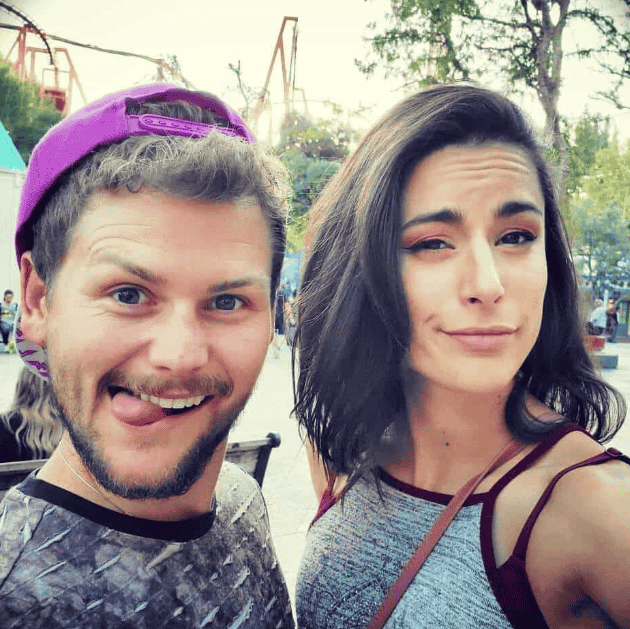
Career and Personal Pursuits
Though Melanie Sergiev has not stepped into the spotlight with a defined career in entertainment or public ventures, she is known to support Drew Lynch’s career in significant ways. Melanie has been an unwavering pillar of support for Drew, often appearing in his social media content and live streams.
Melanie’s role is multifaceted—whether it’s providing creative input, managing aspects of Drew’s professional life, or simply being a source of emotional strength, her contributions cannot be overlooked. While she may not actively pursue a high-profile career, Melanie’s life is a testament to the value of partnership and behind-the-scenes contributions in a relationship.
Her interests seem to align with health and wellness, as evidenced by her posts and occasional public appearances. Melanie’s lifestyle reflects a balance between personal growth and nurturing the bond she shares with Drew.
The Love Story of Drew Lynch and Melanie Sergiev
Drew Lynch, famous for his stuttering-inspired comedy and appearances on America’s Got Talent, met Melanie Sergiev in 2019. Their relationship blossomed quickly, built on mutual admiration and shared values. Drew often credits Melanie for bringing stability and happiness into his life.
The couple’s journey together has been marked by authentic moments, many of which Drew shares with his fans. From humorous anecdotes about their relationship to heartfelt expressions of gratitude, Drew’s admiration for Melanie is evident. Their chemistry shines through in their collaborations on social media, where fans often comment on their genuine connection.
In 2021, the couple tied the knot, sealing their bond in a private ceremony attended by close friends and family. Their marriage is a reflection of their shared commitment to navigating life’s challenges together, with love and laughter as their guiding principles.
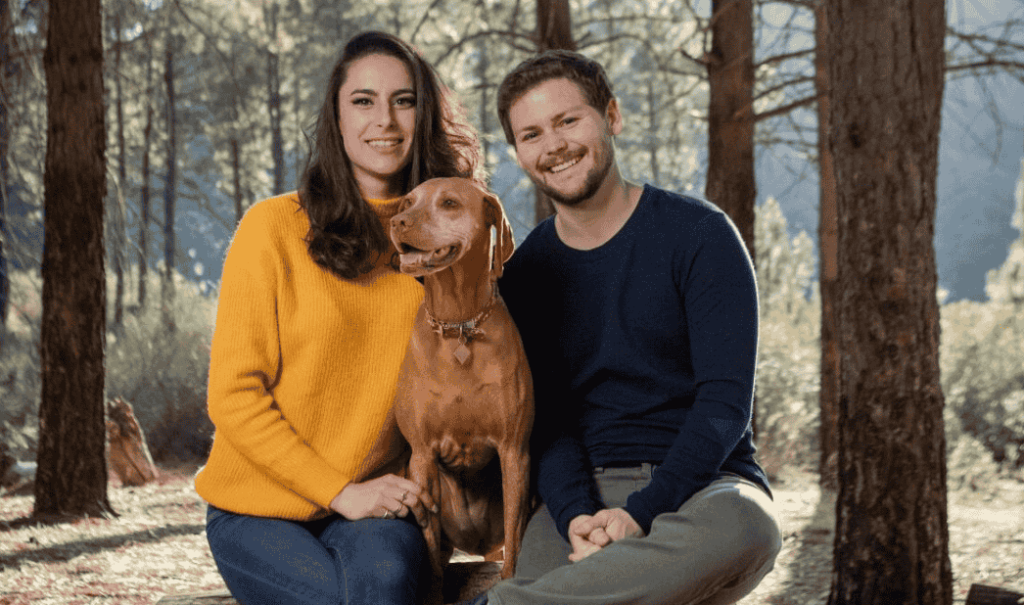
Insights Into Melanie’s Age and Life Today
While Melanie Sergiev’s exact birth year remains private, she is believed to be in her early 30s. Her youthful energy and enthusiasm complement Drew’s lively personality, creating a dynamic partnership.
Melanie’s age aligns with the experiences she brings into her relationship and the wisdom she imparts in her interactions. Whether it’s in her support for Drew or the way she engages with fans, Melanie’s demeanor exudes maturity and kindness.
The couple’s life today is filled with exciting projects, personal growth, and the joy of being each other’s strongest allies. Melanie continues to balance her role as a supportive partner with her aspirations, demonstrating that life’s journey is about growth and shared experiences.
Life Beyond the Spotlight
Although Melanie Sergiev is connected to a celebrity, she has consciously chosen a life that blends privacy with public appearances. Unlike many who get swept up in the frenzy of fame, Melanie values her individuality and the sanctity of her personal life.
This balance is evident in her selective appearances in Drew’s comedy sketches and YouTube videos. She adds a layer of authenticity to Drew’s comedic style, often serving as the perfect foil for his humorous narratives. Their shared moments resonate with fans because they feel real, unscripted, and relatable.
Beyond her presence in Drew’s professional life, Melanie enjoys a grounded lifestyle. She values spending quality time with loved ones, pursuing hobbies, and staying connected to her Bulgarian roots.
Conclusion
Melanie Sergiev may be best known as Drew Lynch’s wife, but her story is uniquely her own. From her roots in Bulgaria to her life in the United States, Melanie embodies resilience, love, and partnership. Her relationship with Drew serves as an inspiring example of mutual respect and unwavering support, reminding us that the people behind the scenes often play the most crucial roles.
While Melanie prefers to stay out of the limelight, her impact on Drew’s life and career is undeniable. Together, they continue to navigate the highs and lows of life, bringing joy and laughter to their fans.
FAQs
Who is Melanie Sergiev?
Melanie Sergiev is the wife of comedian Drew Lynch. Born in Bulgaria, she is known for her supportive role in Drew’s life and career.
When did Melanie Sergiev and Drew Lynch start dating?
The couple began dating in 2019 and later married in 2021.
What is Melanie Sergiev’s age?
While her exact age is not publicly confirmed, Melanie is believed to be in her early 30s.
Does Melanie have a public career?
Melanie prefers to keep a low profile, focusing on her personal life and supporting Drew Lynch’s endeavors.
Where is Melanie Sergiev from?
Melanie Sergiev was born and raised in Bulgaria.
What makes Melanie and Drew’s relationship special?
Their relationship is characterized by authenticity, mutual respect, and shared humor, making them a beloved couple among fans.
Celebrity
Tahmel Hinds: A Glimpse into His Family, Career, and Personal Life

Tahmel Hinds, a name often associated with the iconic Macy Gray, has an intriguing family background that has shaped him into the person he is today. Born to Macy Gray, the Grammy-winning R&B and soul artist, and Tracey Hinds, a mortgage broker, Tahmel comes from a family deeply rooted in both creativity and resilience. His upbringing was enriched by a blend of artistic inspiration and the grounding presence of his extended family.
Tahmel shares the familial spotlight with his two siblings, Happy Hinds and Aanisah Hinds. Happy, the youngest, is known for her vibrant personality, while Aanisah has pursued a creative career in visual arts. The bond between the siblings reflects a close-knit family dynamic. Beyond his immediate family, Tahmel’s lineage includes grandparents Otis Jones and Laura McIntyre on Macy Gray’s side, and Richard McIntyre, who played an influential role in instilling values of perseverance and integrity. His aunt, Nehlia McIntyre, further adds to the familial mosaic, often credited as a supportive figure within their lives.
Relationship with Macy Gray and Tracey Hinds
Growing up with Macy Gray as a mother was both unique and inspiring for Tahmel. Macy, celebrated for her raspy voice and timeless hits like I Try, has often spoken about balancing her career with raising her children. Her success provided a dynamic environment for Tahmel, filled with opportunities to observe the intersection of artistry and hard work.
Tracey Hinds, though not as publicly visible as Macy, also played a crucial role in Tahmel’s life. His background as a mortgage broker introduced stability and a business-oriented perspective into the family. This duality of artistic expression and practical grounding likely influenced Tahmel’s approach to life and career choices.
Macy and Tracey’s co-parenting efforts ensured that their children grew up with a sense of balance and understanding of the world around them. Their dedication to family amidst their individual pursuits is a testament to their commitment to providing a nurturing environment for their children.

Career and Ambitions
Tahmel Hinds has followed a path that blends both creativity and individuality, though he often remains under the radar compared to his high-profile mother. While details of his specific career endeavors are relatively private, it is evident that he values carving his unique niche rather than solely relying on the family name.
Speculation suggests that Tahmel may have dabbled in ventures that align with music, fashion, or entrepreneurship, reflecting the influences of his upbringing. With a mother who embodies musical innovation and siblings pursuing their own creative fields, Tahmel’s career trajectory likely incorporates these inspirations.
His understated public persona suggests a focus on personal growth and a preference for maintaining a low profile, which resonates with a generation that values authenticity over fame.
The Influence of Siblings
Tahmel’s siblings, Aanisah and Happy Hinds, have each brought their own energy and creativity into the family fold. Aanisah, an accomplished visual artist, has showcased her work in exhibitions and digital spaces, earning respect for her distinct style. Her artistic journey complements Macy Gray’s legacy, demonstrating that creativity is a family hallmark.
Happy Hinds, the youngest sibling, exudes a joyful and spirited nature that embodies her name. While Happy’s pursuits are less documented, her personality and close relationship with Tahmel and Aanisah hint at a strong sibling bond. Their shared experiences, coupled with their individual achievements, highlight the strength of their family unit.

Family Legacy and Values
The McIntyre-Hinds family legacy extends beyond individual achievements. Grandparents Otis Jones and Laura McIntyre played pivotal roles in Macy Gray’s formative years, imparting values of resilience and determination that have trickled down to the next generation. Richard McIntyre, another influential figure, further anchored the family’s moral and ethical compass.
Aunt Nehlia McIntyre remains a cherished part of the family, contributing her wisdom and support. The family’s collective emphasis on love, perseverance, and creativity creates a solid foundation for Tahmel and his siblings to thrive.
The importance of family is evident in Tahmel’s life, where close relationships and mutual support act as guiding principles. This legacy of togetherness and encouragement is a key factor in the personal and professional choices made by members of the Hinds-McIntyre lineage.
Personal Life and Interests
Tahmel Hinds maintains a private lifestyle, opting to keep much of his personal life out of the public eye. This choice aligns with the values of authenticity and groundedness seen in his family. While Macy Gray and other family members have embraced public platforms, Tahmel’s reserved approach suggests a desire to chart his own course.
Speculations about his interests point to a mix of creative and entrepreneurial pursuits. His upbringing in a musically and artistically rich environment likely instilled an appreciation for the arts. At the same time, the practical influence of his father, Tracey Hinds, could have steered him toward business-oriented ventures.
Tahmel’s preference for privacy speaks volumes about his priorities—focusing on substance over spectacle and nurturing meaningful connections over superficial fame.
Conclusion
Tahmel Hinds stands as a testament to the influence of family, upbringing, and personal choice. Born into a lineage marked by creativity, resilience, and love, Tahmel has embraced these values while carving his unique identity. From his close relationship with his siblings Aanisah and Happy to the enduring legacy of his grandparents and parents, Tahmel’s journey reflects a harmonious blend of individuality and familial ties.
While he may not court the public eye like his mother, Macy Gray, his life embodies a quieter, yet equally impactful narrative of personal growth and authenticity. Tahmel Hinds reminds us that behind every public figure lies a tapestry of connections and stories that contribute to the fabric of their lives.
FAQs
Who are Tahmel Hinds’ parents?
Tahmel Hinds is the son of Macy Gray, the Grammy-winning artist, and Tracey Hinds, a mortgage broker.
Does Tahmel Hinds have siblings?
Yes, Tahmel has two siblings: Aanisah Hinds, a visual artist, and Happy Hinds, who is known for her vibrant personality.
What is Tahmel Hinds’ career?
Details about Tahmel’s career are relatively private. Speculation suggests involvement in creative or entrepreneurial ventures.
Who are Tahmel Hinds’ grandparents?
His grandparents are Otis Jones, Laura McIntyre, and Richard McIntyre, who have played significant roles in the family’s legacy.
What is Tahmel Hinds’ relationship with Macy Gray?
Tahmel shares a close bond with his mother, Macy Gray, and has been inspired by her artistic achievements and resilience.
Does Tahmel Hinds have a public presence?
Tahmel maintains a private lifestyle, focusing on personal growth and authentic connections rather than public recognition.
-

 Celebrity5 months ago
Celebrity5 months agoBailey Zimmerman’s Net Worth in 2024: A Look at His Earnings
-

 Business7 months ago
Business7 months agoIs Bolt Cheaper Than Uber? Comparing Ride-Hailing Prices and Services
-

 Celebrity5 months ago
Celebrity5 months agoWho Is Charlotte Tilbury: The Visionary Behind a Global Beauty Empire
-
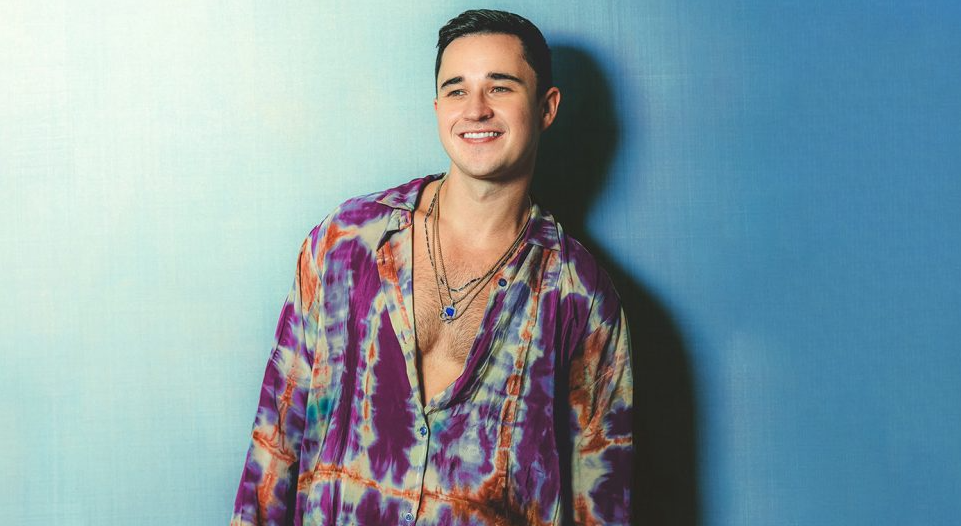
 Celebrity6 months ago
Celebrity6 months agoJohn Summit Net Worth: A Rising Star in the Music Industry
-

 Celebrity4 months ago
Celebrity4 months agoExploring the Life of Andrew Shingange: Trevor Noah’s Brother and an Advocate for Change
-

 Celebrity4 months ago
Celebrity4 months agoCaseOh’s Financial Success in 2024: Net Worth, Income Streams & More
-

 Celebrity5 months ago
Celebrity5 months agoWho Is Josh Winterhalt? All About His Net Worth, Wife Sarah Wayne Callies, and Marriage
-

 Celebrity5 months ago
Celebrity5 months agoJamie Apody Net Worth, Biography, Age, Husband, and Career Journey



